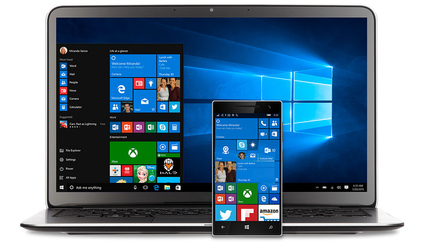How to Ace the A's of Digital Marketing: Adwords
Guest blogger Ben Matthews, Director at Montfort, reveals how charities with smaller resources can make the most of digital marketing. The How to Ace the A's of Digital Marketing is a mini-series of three digestible blogs.
The world of Digital Marketing can seem overwhelming at first, with a wide range of areas to learn about - from Search Engine Optimisation to Conversion Rate Optimisation, Google Ads to Facebook Ads, YouTube videos to Facebook Live.
For small local charities, with smaller resources and often stretched time for staff, it can feel like an impossible task to keep on top of Digital Marketing and make the most of the opportunities that these digital tools offer.
The key is to focus on the essentials and use the main tools in a way that makes the most of your limited time and resources.
In our series, we’ll look at the 3 main tools that small local charities should focus on - Google Analytics, Google Ads and Facebook Ads - as these tools are the simplest to get started with, will give you the most return for any time you do spend on them, and have plenty of helpful articles and guidance online to help beyond the tips outlined below.
If you want to improve your digital marketing, then acing the A's of Digital Marketing - Analytics, Adwords and Advertising - is the way to do it.
The second in our series is...
Adwords
Google Ads (previously known as Google Adwords) is Google’s advertising platform.
You’ll have likely seen a Google ad when making a search online - they’re the small bits of text that appear at the top of the search results and are distinguished from the normal search results by the “ad” tag.
Let’s take a look at how Google Ads can work for your small charity.
1. Get the Google Grant
Imagine what you could do with £7,500 of free advertising every month. You could recruit more volunteers. Attract more donations. And share your story with audiences all over the UK.
It’s all possible with Google Ad Grants, which is open to all registered charities based in the UK.
If you’re successful at applying for a Google Ad Grant you’ll receive £7,500 GBP / $10,000 USD of in-kind Google Ads advertising each month.
To be eligible for a Google Ad Grant, you must have a registered charity number.
Sounds like your organisation could benefit from this? Then head to google.co.uk/grants to find out more.
You will need to register for the Google non-profit programme at Charity Digital Exchange (who oversee due diligence for Google in the UK).
2. Stick to the guidelines
Once you have the Google Ad Grant and are setting up your first Google Ads, there are a few rules to bear in mind:
- Your ads will be entirely text-based (no videos or images).
- They’ll appear only on Google search results pages, in positions below the ads of paying advertisers.
- All campaigns must be keyword-targeted.
- Your maximum cost-per-click (CPC) will be $2.00 USD.
Once you know the guidelines, they’re fairly simple to stick to. There’s even a Google Grants checklist of all that policies you need to stick to to ensure your Google Adwords account is compliant.
3. Concentrate on the Quality Score
Even though Google is giving you free ad spend through their Google Grants programme, they still want to make sure that the ads that are being shown are of a good quality.
Quality Score is Google's rating of the quality and relevance of both your keywords and ads.
The Quality Score for your ads depends on multiple factors, including:
- Your click-through rate (CTR).
- The relevance of each keyword to its ad group.
- Landing page quality and relevance.
- The relevance of your ad text.
- Your historical AdWords account performance.
For example, when more people who see your ad click on the ad and visit your website, that’s a strong indication to Google that your ads are relevant and helpful to users.
If you have a higher quality score (it’s ranked out of 10), Google rewards you with higher ad rankings and lower costs. So it’s worth making sure you improve the 5 factors listed above to improve your quality score and get more clicks for less cost.
Learn how to improve your quality score.
4. Rules Rule!
If you’re worried that you don’t have enough time to manage your Google Ads properly and risk losing access to the Google Grants, then the Rules feature is for you.
Google Ads Rules let you create instructions for whether to pause or stop different parts of your campaign from running if, for example, they stop performing as well as they should and risk you breaking Google’s policies for its grants.
For example, you could set a rule to pause a keyword if it’s Quality Score drops below 2. This automated rule will mean that you’ll never fall afoul of Google’s policy requirements as any poorly performing keywords will automatically be paused.
You can do the same for other aspects of Google’s requirements, such as pausing single keywords or pausing campaigns with a particularly low Click Through Rate (e.g. well below the 5% required).
Google have a guide for common uses for Google Ads Rules here.
About the Author
Ben Matthews (@benrmatthews) is Director at Montfort, a digital marketing for social good, whose clients include UNICEF, UN Refugee Agency, Amnesty International, The Wildlife Trusts and The Jo Cox Foundation. Montfort set digital marketing strategy and run digital marketing campaigns, including social media, paid ads and email marketing, for charities big and small.




